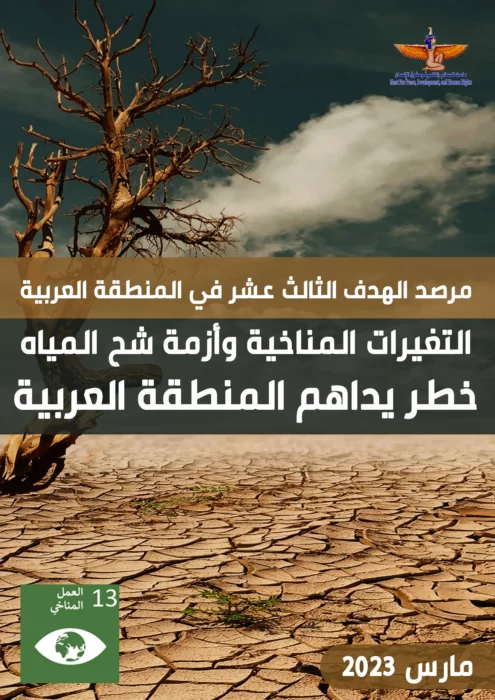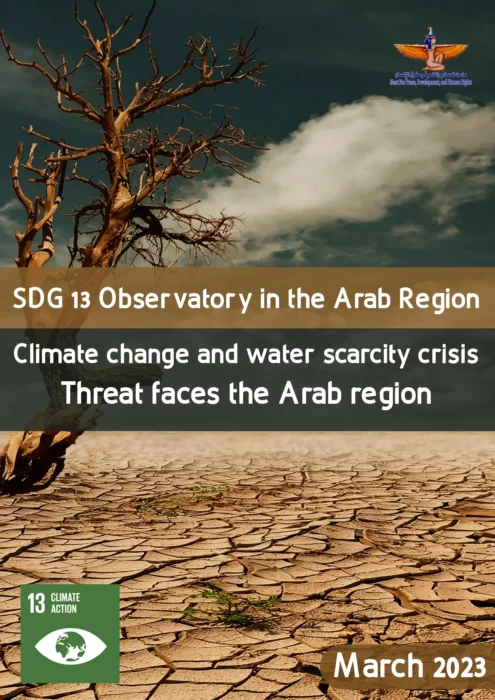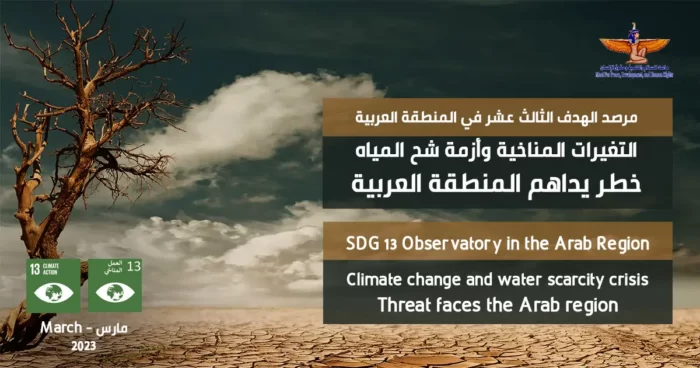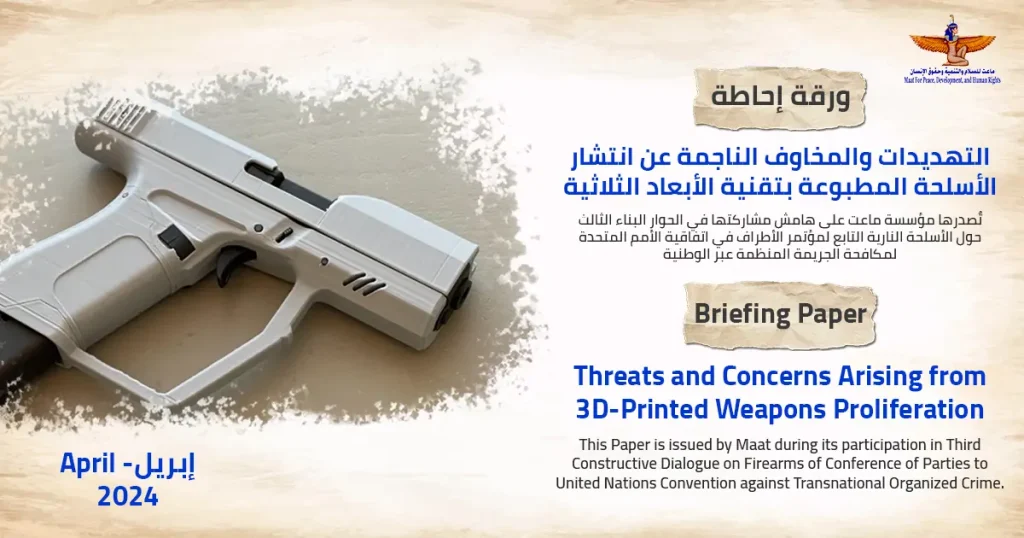Maat: Climate Change and Water Scarcity Crisis is a Threat to the Arab Region
Okeil: We recommend the Arab countries to strengthen the response to the sixth goal during the HLPF this year
Salah: We call on Arab countries to increase projects that support Arab regional cooperation in the field of water
The water scarcity crisis continues to threaten the Arab region, as it comes as a direct result of ongoing climate change. In fact, the Arab region’s contribution to the climate change crisis is very insignificant; however, it is the worst affected by these changes.
In the context of its keenness to promote sustainable societies that preserve human life in a safe and good manner, Maat for Peace, Development and Human Rights releases the fifteenth issue of its monthly SDG 13 Observatory in the Arab Region, under the title “Climate Change and the Water Scarcity Crisis... A Threat to the Arab Region”, in order to track the good practices as well as the challenges faced by Arab countries in achieving the SDG13 of the 2030 Agenda for Sustainable Development.
March’s issue of the Observatory indicated that the Arab region has the scarcest water resources among all regions of the world, as 19 out of 22 Arab countries fall within the scope of water scarcity, and 21 out of 22 Arab countries obtain their basic water resources from transboundary waters. Jordan, Libya, Kuwait, the Emirates, Bahrain and Oman have been declared countries with water crisis. There are 27 other countries suffering from severe water shortages, including Yemen, Algeria, Tunisia, Morocco, Iraq, Syria and Egypt.
Maat’s issue of March tracks the efforts of Arab countries regarding the climate crisis. During March, many Arab countries participated in the United Nations Water Conference, and the impact of climate change on increasing the water crisis was highlighted.
In the fifteenth issue, the State of Iraq was affected by climatic changes in recent years very clearly, and heat waves increased continuously and successively, and temperatures reached 50 degrees Celsius, which had a devastating impact on Iraqi water and food security. 2050 indicate that every child in Iraq will be exposed to frequent, intense heat waves, and for longer periods of time. Currently, 9 out of 10 children in Iraq are exposed to a sharp rise in temperature, and it will only get worse, threatening their health and safety.
Commenting on March’s SDG 13 Observatory in the Arab Region, Ayman Okeil indicated that the human rights expert and President of Maat for Peace, Development and Human Rights, referred to a number of prominent international and regional efforts in the climate file during this month. On the sidelines of the United Nations Water Conference in New York, the United Nations Economic and Social Commission (ESCWA), in cooperation with the League of Arab States, held an event on SDG6, which is related to the provision of clean water and sanitation services in the Arab region.
As for international efforts, the human rights expert stated that the 2023 HLPF will review the sixth goal related to access to safe and healthy water for all. For his part, Okeil called on civil society organizations and parties concerned with water crises in the Arab region to participate in commenting on national voluntary reports, questions of Arab countries on their response to the impact of climate change on achieving Goal 6, and the policies they have adopted to mitigate this impact.
Okeil also recommended international donors to fund Arab countries, especially those affected by conflict, especially in terms of government plans to respond to the impact of climate change on the water sector, and to fund national initiatives aimed at reducing the effects of climate change on water in the Arab region.
Maryam Salah, a researcher in the Sustainable Development Unit at Maat, affirmed what was stated in the ESCWA meeting with the League of Arab States in March, and recommended Arab countries to enhance opportunities for launching projects that support Arab regional cooperation in the field of water and enhance their ability to address climate change and to help each other in mobilizing additional resources financial.
It is noteworthy that the SDG 13 Observatory is a research periodical issued by Maat under the umbrella of the "Maat Platform for Climate Action", which was launched at the beginning of the year 2023. The Platform aspires to enhance the work of civil society in the field of climate action, by launching studies and periodicals aiming to raise levels of climate awareness, in addition to organizing a series of training workshops and activities concerned with discussing mechanisms for addressing and combating climate change at all levels; national, regional and international.

 |
 |











